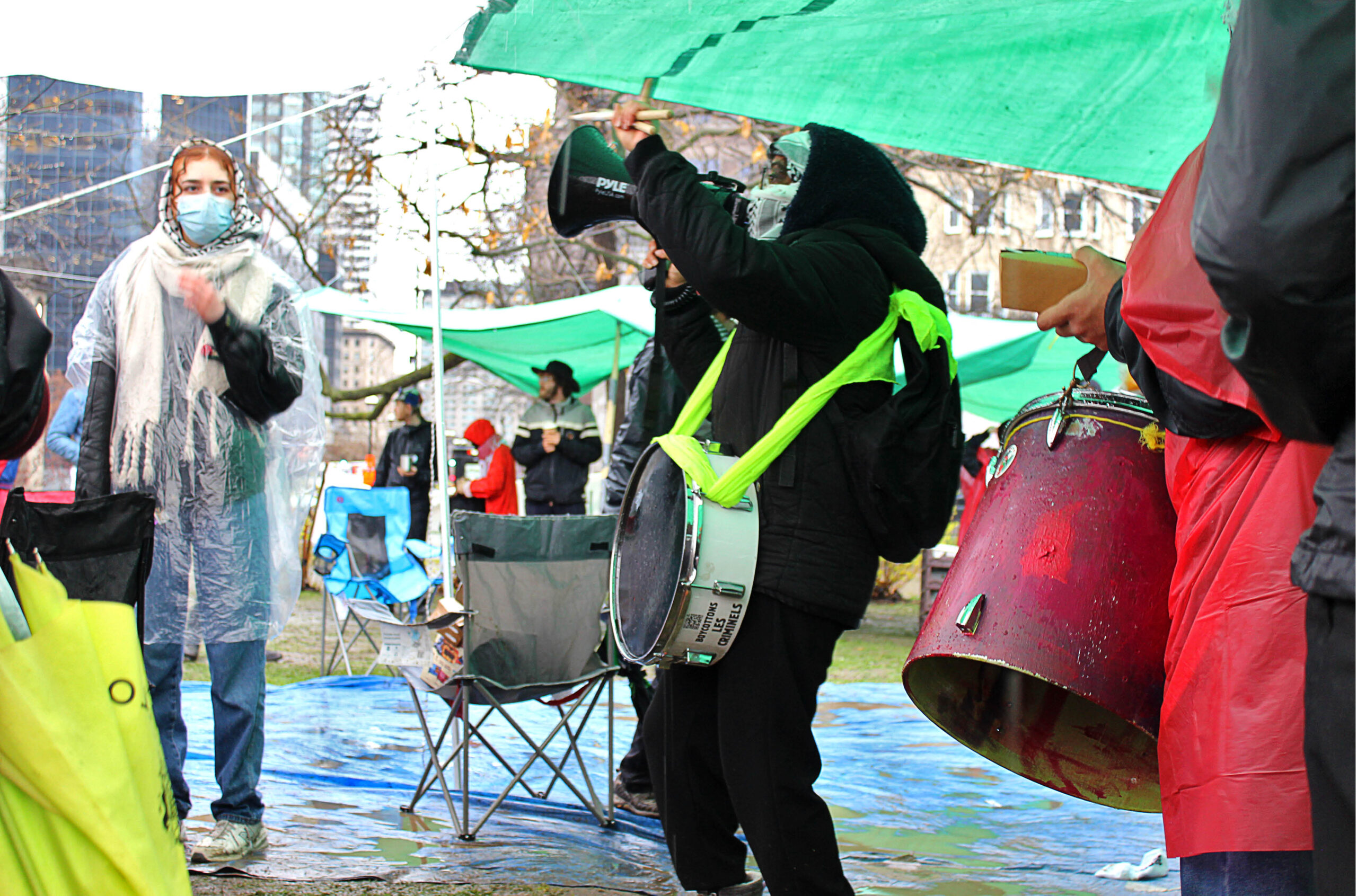I trust that my student’s grandparent died
Students need to reach out for help, and our systems must work to provide solutions.

This past spring, the Chronicle of Higher Education published an article detailing how some professors mock students’ “ready-made” excuses of “dead grandparents” when seeking academic accommodations or after missing class. After the article was published, I received a note from a former student who, several decades ago, was unable to be with their dying parent because a professor refused to accommodate a request to do so, in view of pending academic deadlines. The decision to remain at the university to meet academic requirements, instead of going home, haunts them to this day.
Dead grandparents, sick kids, mental health, the flu: these are not laughing matters. Most of the students I’ve encountered over the years would rather be writing an exam than dealing with illness or grief. Students can’t take “personal days” and therefore universities necessarily have to deal with student requests for academic accommodations. If we want to “do unto others as you would have done unto you,” then we need to improve our processes and change the perspective.
When a student approaches an instructor to ask for academic accommodations, the starting principle should be trust. Imagine asking your chair, dean or supervisor for a day off to attend a funeral, or to come in late because your kid was up all night with gastro. We want, and indeed expect, to be trusted, and we need to extend this courtesy to our students.
I’ve heard the argument that young people haven’t yet earned such trust, that they are still developing and must learn the hard way (life is hard, suck it up!). Yes, life is hard, and when it throws curveballs, young people need empathy, support and a structure that respects their requests and right to privacy, while still holding them to the academic requirements of their courses and programs.
Just as we might often refrain from seeking exceptions for ourselves, most students don’t jump at the prospect of seeking accommodations – the stakes are high, the issues are personal and private, and the consequences of academic accommodations are difficult. They might mean taking an exam weeks or months after the lectures and can put a student behind their peers, creating additional stress. A request for an accommodation is often the result of a cost-benefit analysis that requires students to weigh and choose from among various difficult potential outcomes. Most students don’t seek accommodations, choosing instead to deal with situations in private. But, when an emergency or illness coincides with significant academic stress, they need to reach out for help, and our systems must work to provide solutions.
I recognize that some students will take advantage of the system by seeking out measures like deferred exams, but I have every reason to believe that they represent a minority. In my role as dean of students, I’ve seen talented and ambitious students struggle as they seek accommodations via a process that is sometimes too rigid and often outdated. Requests for accommodations are rising in frequency and institutions need to adapt rather than fall back on the view that students lack resilience. Of course, our students need to learn to grapple with challenges of all sorts, but this doesn’t mean turning our backs on the growing social awareness of the different life circumstances that can arise in the life of a university student. These circumstances often call for academic accommodations to ensure that we treat and assess that student equitably. We also shouldn’t punish the majority because of the few who might abuse our trust.
At McGill University, we are working on a project in which students in many faculties can defer – on a one-time basis – a final exam without a medical note. This project aims to reduce lineups, wait times and other pressures on health services. It’s rooted in the principle of trusting our students. The project has received some legitimate pushback related to workload on student affairs offices, and on professors who have to set and grade more deferred exams. Indeed, continuing the project will require some additional resources, as would centralized accommodation processes and more flexible assessment strategies guided by universal design principles. I think it’s worth it.
Rethinking academic accommodations at universities won’t be easy, but it’s important work. We need to tackle this challenge head-on, and the entire university community has a critical role to play. We need to support students the right way, trust them, and work constructively on solutions instead of contributing to unhealthy narratives. If you say your grandparent died, I believe you. And we are here to help.
Chris Buddle is dean of students at McGill University.
Featured Jobs
- Education - (2) Assistant or Associate Professors, Teaching Scholars (Educational Leadership)Western University
- Veterinary Medicine - Faculty Position (Large Animal Internal Medicine) University of Saskatchewan
- Business – Lecturer or Assistant Professor, 2-year term (Strategic Management) McMaster University
- Psychology - Assistant Professor (Speech-Language Pathology)University of Victoria
- Canada Excellence Research Chair in Computational Social Science, AI, and Democracy (Associate or Full Professor)McGill University















Post a comment
University Affairs moderates all comments according to the following guidelines. If approved, comments generally appear within one business day. We may republish particularly insightful remarks in our print edition or elsewhere.
3 Comments
Professors should not need to make these calls and students should not have to explain their business to a half-dozen or so people they barely know. The Dean of Students Office should handle these situations. First, after being contacted by the student, by confirming the veracity of the situation, essential to being able to deliver the appropriate assistance, as well as safeguarding academic integrity and fairness to other students, the true victims when students make false claims and get undeserved “accommodations”. Second, by alerting all the student’s current professors that this student has a situation that warrants an exception as well as the time frame related to the situation – nothing else. If the student wants to share details, let the student make that call. This method also limits the need for a student who is truely grieving to have to go through the trauma of describing the tragedy just once. This process also gives reassurance to those professors who still value academic integrity and fairness to all their students.
What a great approach to accommodation requests. My research on experiences of post-secondary students with disabilities has shown that students expect exactly what McGill is aiming to give students through the project described in this article: empathy and trust.
I wish there was a way to monitor and provide proof of these events but often times it’s difficult to do so. Insisting on proof can add emotional stress to an already upsetting situation.
I still remember that we had to provide proof of death by sending in a copy of my grandfather’s certificate of death to the Royal Conservatory of Music (RCM) to change my grade 8 piano exam. We lived in BC. My grandparents were in Ontario. My exam was the week of the funeral. Requiring proof meant that during the upheaval of a death in the family and after the funeral my 80 year old grandmother had to copy her husband’s death certificate and send it to us. I thought that was unnecessarily cruel.
Empathy and understanding goes a long way.